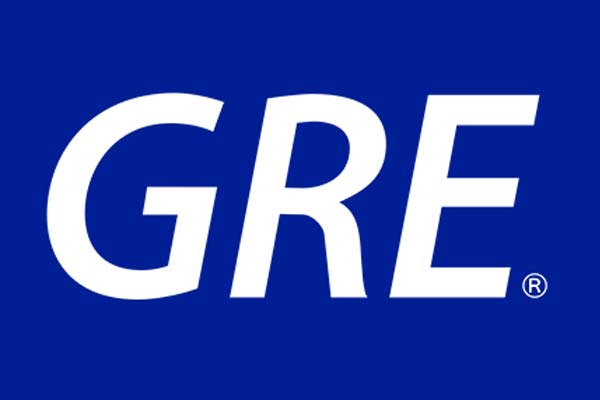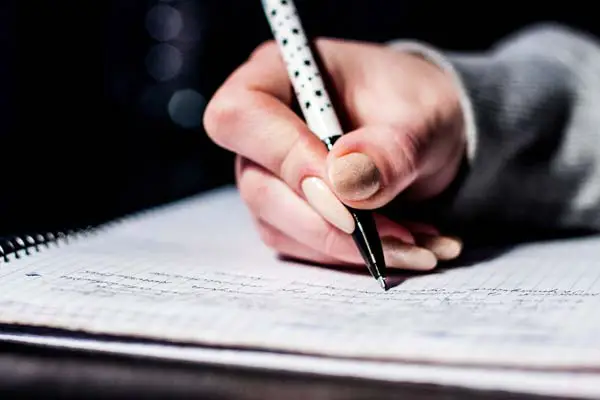Is IGCSE History Hard? A Comprehensive Analysis
IGCSE History is a popular subject among students who have a keen interest in learning about the past. However, many students wonder if history subject is hard and whether they should take it as part of their IGCSE curriculum.
The answer to this question depends on various factors, including the student’s interest in the subject, ability to analyze historical events, and writing skills. Some students find IGCSE History hard because of the content they must cover.
The subject requires students to study various historical events, figures, and concepts from different periods, which can be overwhelming for some.
Additionally, the subject demands critical thinking and analytical skills to understand and interpret historical events and their significance. Students must also be able to express their ideas effectively in writing, which can be challenging for those who struggle with writing.
Despite its challenges, IGCSE History can be rewarding for students interested in learning about the past and developing their analytical and writing skills.
Understanding IGCSE History
IGCSE History is a subject that covers world history from the 19th century to the beginning of the 21st century. The curriculum encourages learners to develop historical skills and understanding to provide historical explanations. It is designed to help students develop their critical thinking, research, and analytical skills.
The IGCSE History curriculum comprises two papers: Paper 1, focusing on Core Content and accounting for 50% of the total marks, and Paper 2, dedicated to Depth Studies and contributing 30%. The remaining 20% of marks are designated for coursework.
The Core Content covers six main topics: the First World War, the Russian Revolution, the League of Nations, the Second World War, the Cold War, and the United Nations.
Depth Studies cover four topics, and students are required to study two of these in detail. The topics include the Arab-Israeli Conflict, the Vietnam War, South Africa, and Northern Ireland.
IGCSE History demands students to hone their writing abilities, encompassing the capacity to craft lucid, compact essays, dissect historical sources, and assess diverse viewpoints and interpretations of historical occurrences.
Furthermore, students are tasked with recognizing and elucidating the origins and repercussions of historical events and comprehending how these events influenced various societal groups.
🌟 Hey Students! 🚀 Ready for the ultimate experience? Join us on Studentsinside.com's Facebook, YouTube, WhatsApp, and LinkedIn. Click now for tips, fun, and success vibes! 🌈✨ #StudentLife #JoinUs
Comparison with GCSE History
IGCSE History and GCSE History are popular subjects for students in the UK and worldwide. While there are some similarities between the two courses, there are also some essential differences that students should be aware of.
One of the main differences between IGCSE History and GCSE History is the level of coursework required. GCSE History typically includes a significant amount of coursework, which can challenge some students.
In contrast, IGCSE History has less coursework, which can make it a more appealing option for students who prefer to focus on exams.
Another difference between the two courses is the content covered. While both courses cover similar topics, there are some differences in how the material is presented.
For example, IGCSE History focuses more on international events and global perspectives, while GCSE History focuses more on British History.
It’s difficult to say which course is harder as it largely depends on the individual student’s strengths and interests. However, some students may find GCSE History more challenging due to the coursework involved. In contrast, others may find IGCSE History more difficult due to the focus on international events.
Critical Topics in IGCSE History
World War I and the Treaty of Versailles
One of the critical topics in IGCSE History is World War I and the Treaty of Versailles. This topic covers the causes and effects of the war and the negotiations that led to the Treaty of Versailles.
Learners will need to understand the role of major world powers in the war, such as Germany, France, and Britain, and the impact of the war on society and politics.
The Treaty of Versailles is an essential aspect of this topic, as it led to the redrawing of national boundaries and the creation of new states.
Learners will need to understand the terms of the Treaty and the impact it had on Germany, as well as the long-term consequences of the Treaty on international relations.
Modern Foreign Languages in History
Another crucial aspect of IGCSE History is the significance of modern foreign languages. This topic delves into how language plays a pivotal role in diplomacy, trade, cultural interactions, and the formation of national identity.
Learners must understand the importance of languages such as French, Spanish, German, English, Chinese, Arabic, Malay, and Italian in historical contexts.
They will also need to understand how language barriers can lead to misunderstandings and conflicts and how translation and interpretation have been used to bridge them.
Examination Structure
IGCSE History has a structured examination procedure that tests students’ knowledge and skills. The examination is divided into two papers, each lasting two hours. The first paper is source-based, while the second paper is essay-based.
Paper Analysis
The first paper, worth 40% of the total marks, involves the analysis of sources. The paper consists of two sections: Section A and Section B. Section A is compulsory and consists of four sources, while Section B consists of two sources, and students have to choose one.
The sources in Section A are usually related to a particular topic, and students must analyze them and answer the following questions. The sources in Section B are usually more general and need students to make comparisons and draw conclusions.
Section A Evaluation
Section A is worth 20 marks and is usually the most challenging part of the paper. Students must analyze the sources carefully and answer the following questions.
The questions usually need students to identify the sources’ purpose, audience, and context and evaluate the information’s reliability and usefulness.
To score well in Section A, students must understand historical concepts, such as causation, continuity, and change, and be able to apply these concepts to the sources. They must also be able to evaluate the sources critically and use evidence from the sources to support their arguments.
Difficulty Level
Regarding IGCSE subjects, History is commonly perceived as one of the more demanding choices. Nevertheless, it’s crucial to understand that the level of challenge is subjective and can differ among students.
The average pass rate for IGCSE History is around 65%, lower than some might expect for a Humanities subject. This could be due to the amount of content that needs to be covered and the need for strong analytical and critical thinking skills.
It’s worth noting that History is not the only challenging IGCSE subject. Users shared their opinions on the easiest and hardest IGCSE subjects in a Reddit thread.
While some agreed that History was complex, others mentioned subjects like Physics, Triple Science, and Extended Mathematics as particularly challenging.
Ultimately, the difficulty level of IGCSE History (or any subject) will depend on the student’s strengths, weaknesses, and study habits. Some students may find History a breeze, while others may struggle with the required reading and writing.
Here are a few factors that could contribute to the perceived difficulty of IGCSE History:
- Amount of content: History covers many topics and periods, which can overwhelm some students.
- Writing skills: History requires strong writing skills, as students need to be able to analyze and interpret historical events and documents.
- Critical thinking: History also requires strong thinking skills, as students must evaluate sources and draw conclusions based on evidence.
Impact on University Applications
IGCSE History is one of the subjects that can be taken by students who are preparing for university applications. The subject is challenging, and students who perform well in it may have an advantage in university admissions.
Students must submit their academic records, including their IGCSE results when applying to university. Universities use these results to assess the student’s academic ability and determine whether they are suitable for the course they are applying for.
The importance of IGCSE results varies from university to university and course to course. Some universities place more emphasis on IGCSE results than others, while some courses require specific IGCSE subjects to be taken. For example, a student who wants to study History at university may be necessary to have taken IGCSE History.
Good IGCSE results, including in History, can demonstrate to universities that the student is academically capable and has a strong foundation in the subject. This can be particularly important for competitive courses where universities receive many applications.
However, it is essential to note that IGCSE results are just one factor that universities consider when making admissions decisions. Other factors, such as personal statements, interviews, and extracurricular activities, are also considered.
Study Tips and Strategies
Time Management
Time management is crucial when studying for IGCSE History. It is vital to make a study schedule and stick to it. One should allocate sufficient time for each topic and ensure they cover all the content before the exam. Teachers can provide a recommended study schedule, and learners can adjust it at their own pace.
Remember to take short breaks using a timer every hour to prevent burnout while studying. During these breaks, stretch, walk, or relax.
Critical Thinking and Memorization
IGCSE History requires learners to have critical thinking skills and the ability to memorize content. Learners can practice analyzing historical events and drawing conclusions to improve their thinking skills. They can also debate and discuss with classmates to gain perspectives on historical events.
To improve memorization skills, learners can use various techniques such as flashcards, mind maps, and summarizing content in their own words. Teachers can also provide learners with past papers to practice memorizing content and answering exam questions.
In addition, learners should practice writing essays and answering exam questions under timed conditions. This will help them manage their time effectively during the exam and ensure they can complete all the questions.
Resources and Support
Online Community
One of the best ways to get additional support and advice for IGCSE History is to join an online community. Many online forums, groups, and communities are dedicated to IGCSE History.
These communities are a great place to share tips, ask for help, and get advice from other students and teachers who are also studying or teaching the subject.
Students can ask questions, share their experiences, and learn from others who have already taken the exam. Teachers can also share their resources, lesson plans, and teaching strategies with other educators. Some popular online communities for IGCSE History include Reddit, Facebook groups, and online forums.
School Support Hub
Cambridge International offers a School Support Hub for teachers and students preparing for IGCSE exams. The hub provides many resources, including past papers, mark schemes, examiner reports, and specimen papers.
Teachers can access teaching resources, lesson plans, and support materials to help them prepare their students for the exam. Students can access study materials, revision guides, and practice questions to help them prepare for the exam.
The School Support Hub also provides access to subject experts who can answer questions and provide additional support and guidance. Teachers and students can also sign up for webinars and training sessions to help them prepare for the exam.








